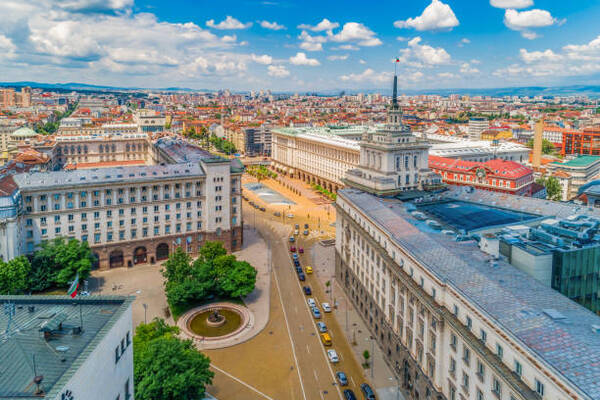Published on
October 20, 2025
Bulgaria is transforming its tourism sector by focusing on sustainability and digital innovation. The government’s efforts to promote eco-friendly travel, combined with cutting-edge technology, aim to preserve the country’s rich heritage while catering to the growing demand for sustainable tourism. This approach not only enhances the tourist experience but also ensures the long-term protection of Bulgaria’s natural and cultural treasures.
Bulgaria is renowned for its rich cultural heritage, with cities that span millennia and stunning landscapes that make it one of Europe’s most picturesque destinations. As the tourism sector continues to thrive, there is a growing emphasis on sustainability, with efforts to preserve the environment in response to global climate challenges.
The Bulgarian government has been proactive in enacting legislation aimed at fostering sustainable tourism. Recognizing the environmental impact of tourism, the country is focusing on measures to ensure that growth in the sector does not come at the expense of its natural beauty. As more visitors are attracted to Bulgaria’s rich history and scenic landscapes, these sustainability initiatives are expected to play a key role in shaping the future of the industry.
Adopting Technological Innovations
Technology is playing an increasingly significant role in Bulgaria’s tourism landscape, particularly as the country seeks to modernize its offerings and improve the tourist experience. From the entertainment sector to digital gaming, Bulgaria is harnessing the power of innovation to enhance its tourism strategy.
In the entertainment industry, AI is now being used in film production, not only to reduce the time it takes to create content but also to improve the quality of the final product. Similarly, Bulgaria’s iGaming sector is benefiting from digital advancements that enhance user experience. Platforms such as Betfair provide players with live casino experiences, featuring real-time interactive gameplay and the opportunity for players to engage with each other via live chat. These digital developments are also finding their place within the tourism sector. By incorporating these technologies, Bulgaria can improve sustainability while offering enhanced experiences to potential visitors.
As part of this effort, Bulgaria has partnered with prominent platforms like CNN and Booking.com to promote the country to a global audience. Virtual tours of UNESCO World Heritage sites such as the Rila Monastery and the Thracian Tomb of Kazanlak allow potential visitors to experience Bulgaria’s historical treasures remotely. In addition, these platforms provide real-time information on accommodation options and local events, helping tourists to plan their visit efficiently.
National Commitment to Sustainability
Bulgaria’s commitment to sustainable tourism has been reinforced through several key initiatives. In 2025, the government unveiled an updated tourism strategy, addressing critical issues such as transport infrastructure, connectivity, and efforts to reduce the reliance on seasonal tourism. A major component of this strategy is digital transformation, which is also linked to the 2024 Charter for Sustainable Tourism.
The Charter sets ambitious goals for Bulgaria to become a year-round destination, focusing on sustainable practices. This includes responsible use of natural resources, community-based planning, and a long-term development plan for infrastructure. The strategy prioritizes minimizing the environmental impact of tourism while promoting the country as a destination that balances both growth and sustainability.
Eco-Tourism Projects in Bulgaria
Several initiatives in Bulgaria are specifically focused on promoting eco-tourism while boosting local communities. One such project is the Creative DG EcoTour initiative, which launched in 2025. Targeting municipalities such as Kresna, Strumyani, and Vasilevo, the project aims to develop the local infrastructure and improve living conditions. As part of the initiative, digital visitor guides, eco-trails, and sustainable accommodations are being created, all while supporting local crafts and promoting cultural events.
The Creative DG EcoTour project also emphasizes the importance of preserving Bulgaria’s cultural heritage, with a focus on developing eco-friendly tourism experiences that leave minimal environmental impact. By offering tourists sustainable travel options, this initiative allows them to experience Bulgaria’s beauty while contributing to the well-being of local communities.
Boosting Regional Tourism with the Schengen Area
A significant milestone in Bulgaria’s tourism journey occurred on January 1, 2025, when the country officially joined the Schengen Area. This development is expected to have a profound impact on both tourism and business within Bulgaria. With the removal of border controls, travel between Bulgaria and other Schengen countries will be more seamless, providing an added incentive for visitors to explore Bulgaria’s cultural and natural attractions.
The integration into the Schengen Area complements Bulgaria’s sustainability efforts, providing an opportunity for the country to further enhance its tourism sector and become a more competitive player within Europe. As tourism continues to rise across the continent, Bulgaria’s commitment to sustainable practices will position it as an appealing destination for eco-conscious travelers.
Bulgaria’s tourism industry is evolving rapidly, driven by a combination of digital innovation, sustainability initiatives, and the country’s increasing role in the global tourism market. With its rich heritage, diverse landscapes, and forward-thinking approach to tourism, Bulgaria is well-positioned to attract visitors year-round. By continuing to embrace sustainability and innovation, Bulgaria will ensure that its tourism sector not only thrives but remains environmentally responsible for generations to come.


